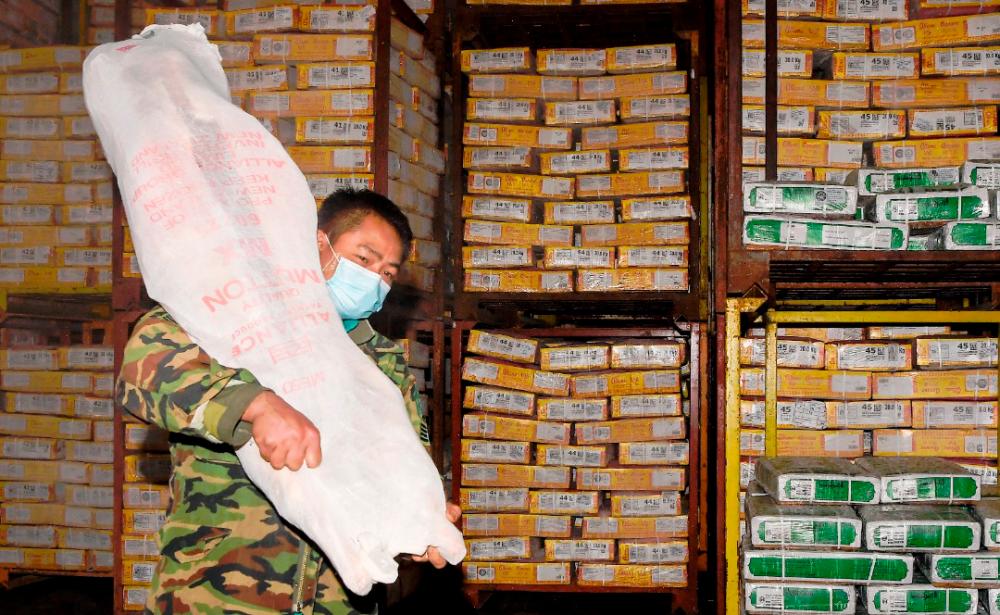PETALING JAYA: Malaysia stands to lose foreign direct investment (FDI) if its Covid-19 response does not improve soon.
Some foreign companies have alluded that they may have to shut operations in Malaysia and move elsewhere out of concern for the safety of expatriates and their families.
In separate letters to federal government leaders, five trade groups representing investors from Germany, Japan, the Netherlands and the United States also stated that foreign businesses are rethinking their decisions to invest in Malaysia, adding that if the situation persists, some of them might think about relocating elsewhere.
American Chamber of Commerce in Malaysia chief executive officer Siobhan Das expressed the view that the government has failed to appreciate that every time a lockdown is imposed, it disrupts the supply chains and causes serious damage to the country as well as its reputation.
“Although investments seem to still be flowing in, the current situation has painted (a picture of) an unstable and unpredictable environment,” Das told theSun.
As a result, she said some companies are reviewing their future plans in Malaysia and undertaking risk mitigation strategies to protect vulnerable supply chains.
She pointed out that with the ease of technology today, it would be relatively simple for companies to shift production capacity or reduce their footprint in Malaysia by re-routing inputs.
“Once an alternative location is able to deliver, these lines may never return to Malaysia,” Das added.
The number of daily new cases of Covid-19 hit an all-time high of 11,079 yesterday while the death toll reached 6,385.
Among the other business groups that also raised concerns are the Malaysian-German Chamber of Commerce and Industry (MGCC), the Malaysian Dutch Business Council as well as the Japanese Chamber of Trade and Industry Malaysia (Jactim) and the Japan External Trade Organisation.
In its letter to Prime Minister Tan Sri Muhyiddin Yassin, MGCC expressed concern over what it described as “inconsistent and confusing” standard operating procedures (SOP) that it said had affected the sustainability of member companies during the crisis.
One Johor-based German company, Weidmuller, said it may be forced to relocate production operations to Spain to meet clients’ demands, illustrating the seriousness of the situation in Malaysia.
Jactim said almost all companies under its umbrella have halted operations because of the enhanced movement control order.
“As the industry is already badly affected, many of our member companies are at risk of closing down,” it said in a letter to Muhyiddin.
Japan accounts for the second largest cumulative FDI in Malaysia and is the largest in the manufacturing sector. Japanese manufacturing companies employ more than 340,000 Malaysians workers.
Sunway University economist Dr Yeah Kim Leng said the current drop in FDI mirrors the 78.6% decline during the 2009 global financial crisis.
“The net FDI flow into Malaysia declined by 54.8% to RM14.6 billion last year after being hit by the pandemic crisis.”
In contrast, the average annual FDI inflow averaged RM36.9 billion over the past 10 years.
Yeah said it comes as no surprise that multinational corporations will relocate elsewhere given that they have not been allowed to operate for an extended period of time.
“This is an immediate threat to Malaysia’s future growth as well as employment and external trade prospects. In addition, uncertainties over the duration and consistency of rules and operating procedures are adding to their woes,” he added.
Yeah said a speedy and coordinated response by the government is essential.
“The winning strategy clearly lies in the ramping up of vaccination of employees, speedy testing, contact tracing and isolation of infected workers, and effective SOP forged through closer collaboration between government and businesses.”













